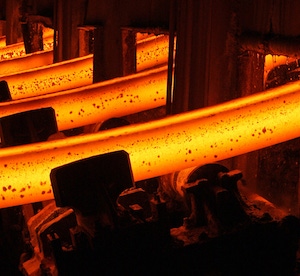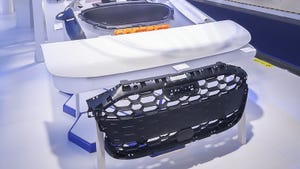Moldmakers dodge impact of steel and aluminum tariffs thanks to Trump’s exemptions
The tariffs primarily will have an impact on companies buying steel from China and a handful of other countries.
March 30, 2018

 Moldmakers may have escaped the impact of tariffs on steel (25%) and aluminum (10%), thanks to Trump’s exemptions for steel and aluminum produced in Canada and Mexico—the first to be announced—along with the European Union, Argentina, Australia, Brazil and South Korea, which were announced on March 22.
Moldmakers may have escaped the impact of tariffs on steel (25%) and aluminum (10%), thanks to Trump’s exemptions for steel and aluminum produced in Canada and Mexico—the first to be announced—along with the European Union, Argentina, Australia, Brazil and South Korea, which were announced on March 22.
A few moldmakers were a bit nervous. One wrote that he had received a notice a few weeks ago from one company alerting him to the fact that “steel tariffs are kicking in on our steel,” resulting in a 25% price hike after April 1. On the large molds that this company produces, this could add $10,000 to the price of a mold, said the moldmaker, which could make the company non-competitive in its bids. “Good thing I have 30-day terms on my quotes,” he wrote to me.
Trying to get responses from various mold steel and aluminum suppliers was unsuccessful. Only Bohler Uddeholm replied—it gets steel from Europe, so it won’t be affected by the tariffs.
It looks like the moldmaking industry will be okay thanks to the exemptions, except for those who buy steel or aluminum from Chinese suppliers. But then any company that buys steel and aluminum from China is taking a big risk with quality, so perhaps the tariffs on Chinese steel and aluminum are their saving grace.
The new tariffs “will apply to all goods entered, or withdrawn, from warehouse for consumption on or after 12:01 AM EDT on March 23, 2018,” said a news item from PlanteMoran. “With objectives to increase U.S. steel mill operating capacity to 80% (from an estimated 72.3% in 2017) and primary aluminum production to 80% (from an estimated 39% in 2017), the Department of Commerce found that ‘excessive’ steel imports and the ‘present quantities and circumstances’ of aluminum imports are weakening both the domestic economy and national security.”
In attempting to help manufacturers assess the impact of these tariffs, PlanteMoran acknowledged the “uncertainty about where the material is purchased, particularly when buying steel or aluminum through distributors and service centers. For the auto industry, provenance may be more certain given the strict material specifications that may limit where materials are sourced. For other manufacturers, contractors and those with steel and aluminum in their bills of materials, the primary source of materials may be a surprise.”
PlanteMoran recommends that OEMs identify the materials, material processes and processors, and fabricators in their supply chain . . . “as far down through the supply chain as possible.” PlanteMoran also suggests that OEMs “carefully review contracts with suppliers and customers to [ensure their] company is as material-neutral as possible, and not accepting material cost increases from a supplier that cannot be mitigated with the customer.”
Now that the exemptions are in place, it should be easier for moldmakers to purchase their steel and aluminum from exempt countries, thus not incurring additional costs in the mold build.
It’s important to remember that these tariffs are about more than just addressing the dumping of materials from China. A blog post from the Alliance for American Manufacturing—“Don’t Forget: China Has Stolen American Trade Secrets for Years Now,” by Elizabeth Brotherton-Bunch—notes that the bill is a “three-pronged approach designed to address China’s rampant intellectual property (IP) theft, which will include about $50 billion in tariffs, the filing of a complaint at the World Trade Organization and an investigation into Chinese investments in the United States.”
We have long known that China’s practice of IP theft, counterfeiting and other unfair trade practices have harmed American businesses and cost American jobs.
Just the other night on the evening news it was noted that China has announced it is now willing to talk about trade matters.
I guess that a little of Trump’s “tough love” is starting to work!
About the Author(s)
You May Also Like




